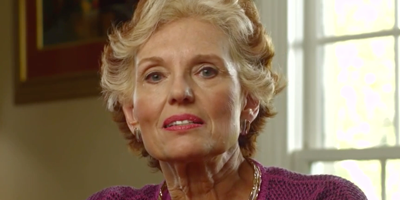What to do when a loved one dies
In addition to the emotional toll, a loved one’s death requires you to deal with legal and financial issues. This guide offers some basic information to get you started.

Dealing with the loss of a loved one
Losing someone you love is difficult enough. Unfortunately, the loss of a loved one also comes with a myriad of legal, financial and logistical issues that need to be dealt with. This printable guide can help you focus on decisions and documents required at various times.
One-to-three days after death
During this time, making decisions can be overwhelming. You might want to ask a trusted friend or relative to help. It’s also a good idea to contact a qualified attorney to ensure that all matters are properly addressed. The initial days typically center on the funeral and remembrance.
- Contact the funeral home to pick up your loved one.
- Confirm any planned funeral arrangements with the funeral director.
- If no funeral arrangements were planned, consider calling on someone to help you organize them (such as a relative, close friend or clergy).
- If your loved one was on public assistance, contact Social Services to see if burial assistance is available. (The support will be limited, so investigate funeral costs before contracting arrangements.)
- If your loved one was a veteran, contact the Veterans Administration about possible funeral benefits.
- Contact the local paper to place an announcement about the death and funeral.
- Ask someone to assist in calling relatives, friends and business associates to notify them of the death and funeral arrangements.
- Ask someone trustworthy to help with:
- Answering the phone
- Collecting mail
- Caring for pets
- Staying at the home during the funeral to prevent break-ins
- Dealing with perishable food
- Providing food for family and friends after the funeral
- If family members need to fly in for the funeral, have them ask the airline about a bereavement fare. Some airlines offer discounted rates.
- Locate the will. Determine the personal representative who was designated to carry out instructions.
- Look for any prepaid burial plan documents or instructions regarding funeral arrangements with the funeral director.
- If you maintained joint-owned savings or checking accounts, consider moving the funds into an account solely in your name. Some accounts may be frozen pending probate.
- Contact your loved one’s employer (if any) or if retired, the former employer. Ask:
- About any outstanding compensation due
- If there was a pension or 401(k) plan
- Whether dependents (if any) are still eligible for benefits
- If there is life insurance through the company (group term). If so, what do they require to begin the claim process?
- If the Veterans Administration sent your loved one monthly payments, contact them to stop the payments.
One-to-ten days after death
This time is typically spent focusing on financial and legal matters, as well as contacting entities and people who might not have already been informed.
- Obtain 10 to 15 certified copies of the death certificate. You can do this through the funeral director.
- Have the personal representative look for:
- Safe deposit box agreement and keys, if any. Anyone named on the box can access it. Heirs and beneficiaries can ask the bank to search for the will, burial plot deed or burial instructions. (Anyone other than the personal representative will most likely receive document copies.)
- Social Security card or number
- Trust agreements
- Nuptial agreements
- Life insurance policies or statements
- Pension, IRA or retirement statements
- Motor vehicle titles
- Mortgage and title policies, and deeds of trust
- Leases
- Loans
- Income tax returns for several years
- Gift tax returns
- Marriage, birth and death certificates
- Citizenship papers, if applicable
- Divorce papers
- Military records and discharge papers
- Certificates of deposit
- Stock and bond certificates and account statements
- Unpaid bills
- Record of any bankruptcy filings
- Health insurance papers
- List assets. These include checking, savings and retirement accounts, trusts, insurance policies and securities. Assets also include interests in business, real estate and personal property. Locate any paperwork for these.
- Find out if you should set up a bank account to receive the estate’s money and pay its bills. The court might need to authorize this.
- Find out if probate is required. Initiate the proceedings if necessary.
- Have the attorney notify beneficiaries if probate is needed or under way.
- Have the attorney notify the person(s) designated to be a child’s guardian, if applicable.
- Family members, friends and business associates
- Your loved one’s attorney, accountant, banker, insurance professional, investment advisor, stock broker and business partners, if any. These professionals can guide you in settling the estate.
- Your loved one’s physician(s)
- The local newspaper (print version or online)
- Social media sites
- Email accounts
- Organizations that will be affected by the death. For example, creditors, financial institutions, Social Security, utilities, cell phone and cable companies, the post office and subscription services (periodicals, movie rentals by mail, memberships, etc.).
You can begin this process online.
Months one through nine
As the estate moves through the settlement process, the final financial and legal details come into play.
Here are some areas to consider in keeping your own estate organized.
- Estate documents. Review and update your will and beneficiary information. (This includes insurance policies, financial accounts and investments.)
- Death benefit proceeds. Rather than receive a lump sum payment, you may want to keep the money in a benefit account that works like an interest-bearing checking account. Or consider an annuity, which can pay you now or when you retire.
- Health Insurance. If you had health coverage through your loved one’s company, contact the employer. You may be eligible to keep it at a reduced rate, or purchase COBRA. If you are no longer covered, you will need to investigate other plans.
- Life and Disability Insurance. If you are now your family’s primary provider, consider additional disability and/or life insurance. This will protect them and provide you peace of mind.
- Ownership changes. Make any necessary ownership changes to checking and savings accounts, mortgages, credit cards, vehicles, etc. This will require copies of the death certificate.
- Item locations. Tell loved ones where you keep important documents and items, including your safety deposit box and key.
- Assets, liabilities and personal information. Summarize essential information for your loved ones. Refer to Protective’s Personal and Financial Summary for assistance.
- Consult a tax advisor about potential state or federal taxes.
- Find out if the court requires a final statement summarizing the estate’s income and expenses. In probate cases, it can take at least a year for final approval.
- The settlement and probate process includes paying all of the estate’s obligations (debts, taxes and claims). After this, the remaining assets are distributed.
- When the asset distribution is complete, the court closes the estate.
Grieving and healing
Everyone grieves differently. Some people reach out; others withdraw. Some grieve openly; others more quietly. Grieving the loss of a loved one is an emotional situation that is highly personal. There’s no right or wrong way, and no “appropriate” amount of time.
Understanding bereavement and allowing yourself to grieve can be an important part of the healing process. The following resources might help:
- American Association of Retired Persons (AARP)
- National Funeral Directors Association
- National Institutes of Health
We hope that your grieving and healing process soon leads to a time when fond memories begin to replace your feeling of pain and loss.

Additional resources




